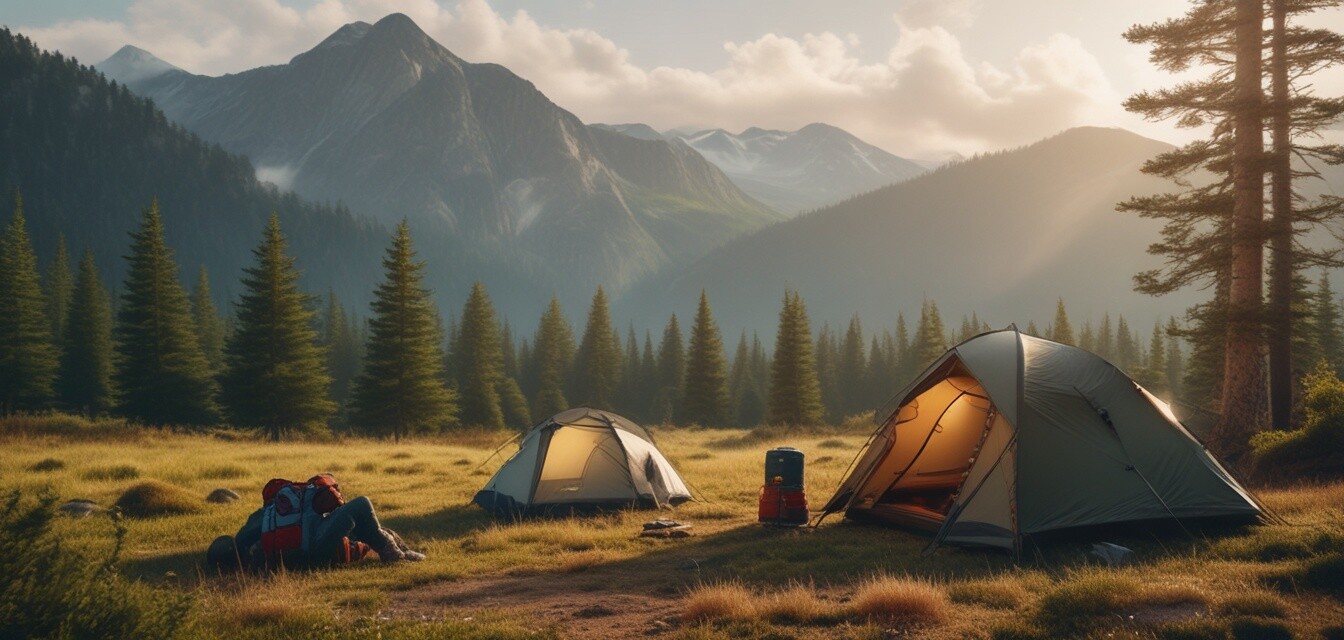
The Future of Camping Sustainability
- Sustainability is increasingly important in camping, guiding new practices and trends.
- Beginners can adopt eco-friendly methods, enhancing their outdoor experiences while minimizing their impact on the environment.
- Innovative gear and technology are shaping a more sustainable camping experience.
- Engaging with the local ecosystem promotes a deeper connection to nature and responsible camping.
- Staying informed about trends in sustainability can help campers choose the best practices and products.
As camping continues to grow in popularity, the importance of sustainability cannot be overstated. Not only does it preserve the environment, but it enhances our camping experiences by creating a deeper connection to the natural world. In this article, we will analyze current trends in camping sustainability and offer practical advice for beginners looking to adopt eco-friendly practices on their trips.
Sustainable Camping Trends to Watch
The shift toward sustainability is influenced by both consumer demand and environmental necessity. Here are some of the key trends that can shape the future of camping:
| Trend | Description |
|---|---|
| Multi-use Gear | Camping equipment that serves multiple purposes becomes more efficient and reduces waste. |
| Biodegradable Products | From biodegradable utensils to eco-friendly toiletries, there’s a rising availability of products that minimize environmental impact. |
| Zero-Waste Camping | This trend encourages campers to plan trips focused on creating minimal waste, including meal planning and waste disposal strategies. |
| Local Sourcing | Supporting local businesses and using locally-sourced products emphasizes community and reduces carbon footprints. |
| Technology Integration | Apps and technologies that promote sustainable practices, such as mapping for minimal impact camping, are on the rise. |
Eco-Friendly Practices for Beginners
For beginners eager to make a positive impact while enjoying the great outdoors, implementing environmentally friendly practices is both rewarding and manageable. Here are practical tips to get started:
- Plan Ahead: Research your campsite and surrounding environment to understand any specific regulations or guidelines on sustainability.
- Choose the Right Gear: Invest in multi-use gear to minimize the amount of equipment you need to bring along. Explore options within our Backpacks & Carriers category for versatile gear.
- Respect Nature: Follow Leave No Trace principles: pack out what you pack in, stay on designated trails, and be mindful of wildlife.
- Practice Minimalism: Only bring essentials to reduce waste and avoid over-packing.
- Cook Sustainably: Opt for meal prep techniques that reduce waste and choose local, seasonal ingredients whenever possible. You can learn more about this in our Cooking & Meal Prep section.
Technological Innovations in Sustainable Camping
As we evolve, technology has a significant role in aiding our sustainable practices during camping trips. Here are some innovative solutions:
- Solar-Powered Gear: Devices like solar chargers and lamps reduce dependency on batteries and fossil fuels.
- GPS & Mapping Technology: These tools can help campers avoid environmentally sensitive areas and track waste disposal sites.
- Campsite Reservation Systems: Online reservation systems ensure that campground capacity is managed effectively, reducing overcrowding.
The Role of Community in Sustainable Camping
As a beginner, engaging with a community can offer endless resources on sustainable camping. Participate in local workshops, join online forums, and connect with experienced campers. You can dive deeper into community activities in our Camping News and Trends category.
Supporting Local Economies
Connecting with local businesses not only supports the economy but also fosters a relationship with the surrounding environment. Here’s how you can engage responsibly:
- Shop at local stores for supplies instead of large chains.
- Participate in community clean-up to enhance natural spaces.
- Ask locals about eco-friendly practices and recommendations in the area.
Embracing a Sustainable Mindset
Sustainability starts with mindset. As more campers adopt environmentally conscious practices, the collective influence can lead to significant change. Here’s how you can embrace this mindset:
- Stay Informed: Keep up with camping trends, gear updates, and eco-friendly initiatives.
- Share Knowledge: Discuss what you learn with fellow campers to spread awareness.
- Practice Authentically: Approach camping with a genuine willingness to change habits that are detrimental to the environment.
Pros
- Encourages responsible camping practices.
- Enhances connection to nature.
- Supports local economies and reduces carbon footprints.
Cons
- Initial investment in sustainable gear can be higher.
- Some locations may lack educational resources.
Conclusion
As we move into a future that prioritizes sustainability, it is essential for beginners to embrace new camping practices that benefit both individuals and the environment. By adopting eco-friendly methods, using innovative products, and engaging with the community, you can elevate your camping experience while protecting the beauty of the natural world. Be a part of the movement toward sustainable camping and prepare for future outdoor adventures with a focus on care and responsibility.
Ready to start your sustainable camping journey? Make sure to check our Camping Tips and Tricks for more ideas and advice!